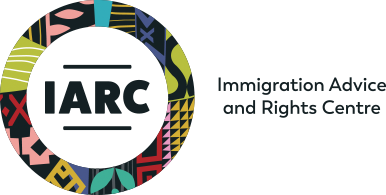Article by Jake Davies and Sarah Sinclair
The Immigration Advice and Rights Centre welcomes reform to the migration system which exempt children born and living in Australia from certain health criteria. The change, which came into effect in October, covers future visa applications and all applications yet to be decided on by the Department of Home Affairs or the Administrative Review Tribunal.
Australia’s health criteria give the Federal Government the power to reject a visa application if an applicant or one of their family members is expected to have future health care or community services costs above what is called the Significant Cost Threshold. In many cases, visa applicants face a “one fail, all fail” requirement – if one family member has costs above the threshold, the entire family’s visa application can be refused.
“Before this reform, vulnerable families were being put in unimaginable situations. Many families who had called Australia home for years were forced to leave the country or separate if their child was born in Australia with a disability or medical condition,” Senior Solicitor Kristie Mellor said.
“The system needs significant changes, and this is a positive step forward. It means more families can remain in Australia together,” she said.
What is the Migration Health Requirement and who can access health waivers?
To get most Australian visas, applicants must meet what is called a Migration Health Requirement. It involves a health assessment, where a medical officer evaluates whether a person living with a disability or medical condition will incur ‘significant costs’ to the Australian community. If expected health care and community services costs exceed the Significant Cost Threshold (SCT), the visa must not be granted unless a health waiver exists. Costs are generally assessed for the period of the visa grant and can be up to 10 years if the visa is permanent. The SCT is currently set at $86,000.
Currently, less than a third of all visas (temporary and permanent) have access to a health waiver. These visa subclasses are mostly within the family and humanitarian categories, but some skilled visas are also eligible. The waiver allows the Department of Home Affairs to consider an applicant’s personal circumstances, such as compelling reasons to stay in Australia or the benefits they bring to the country. Without it, only the applicant’s projected healthcare and community services costs are assessed, ignoring their personal circumstances.
Further reforms needed to make system fairer
This month’s reform, exempting children born and living in Australia from certain health criteria, is significant and follows years of campaigning by advocacy groups, including IARC.
The Department of Home Affairs completed a review of the Migration Health Requirement in July, after a public consultation process (IARC’s submission can be read here). It released a report proposing 11 actions to reform the Migration Health Requirement, including the recent change, but five of the actions are yet to be implemented and lack a clear timeframe for completion.
To continue improving inclusivity in the immigration system, IARC is urging the Federal Government to:
1. Implement the remaining five actions in the Department of Home Affairs report.
2. Amend the action which recommends “greater access to a health waiver for permanent skilled visa subclasses” to include all visa applications.
“These additional changes would improve the lives of many vulnerable families in Australia,” Ms Mellor said.
“For example, excluding special education costs from the health cost assessment would mean that children with autism who were not born in Australia would no longer be deemed too expensive to remain here,” she said.
Greater access to a health waiver for all visa applicants would also make a significant difference.
“Where a health waiver isn’t available, the Department of Home Affairs cannot consider a visa applicant’s personal circumstances. This means that people with compelling reasons to stay in Australia are left hoping for ministerial intervention to be granted a visa to remain in Australia,” Ms Mellor said.
“This is a costly and time-consuming process, involving a lot of uncertainty, which could be avoided if more visa pathways provided access to health waivers,” she said.
A recently published report by the Australian Parliament’s Joint Standing Committee on Migration also recommended excluding special education costs from the health cost assessment and extending health waivers to all visa applicants. The Committee quoted this joint IARC and Unions NSW policy submission.
IARC looks forward to continuing to engage with the Federal Government to advance the other changes needed to create a fairer and more accessible immigration system for all visa applicants.
Media Contact
Sarah Sinclair
0419 170 535
[email protected]
